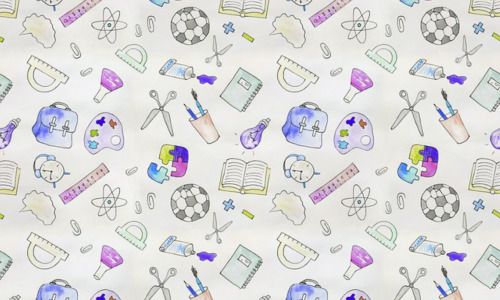初中如何减压英语作文
Junior high school is a crucial period in a student's life, a bridge between childhood innocence and the challenges of adulthood. Academic pressure mounts, expectations soar, and the social landscape shifts, creating a perfect storm for stress and anxiety. This pressure, if left unmanaged, can negatively impact a student's mental health, academic performance, and overall well-being. It's not uncommon for students to feel overwhelmed by exams, homework, extracurricular activities, and the constant comparison to their peers. This pressure often manifests as sleep problems, decreased appetite, irritability, and difficulty concentrating – all signs that effective stress management strategies are needed. Therefore, understanding and employing healthy coping mechanisms is vital for navigating this challenging period successfully. This essay will explore practical and effective methods that junior high students can use to reduce stress and maintain a healthy balance between academics and personal life. We will delve into strategies that address the physical, emotional, and social aspects of stress management, providing a comprehensive approach to a problem affecting many young people. Remember, seeking help is a sign of strength, not weakness, and there are many resources available to support you.
 One of the most effective ways to manage stress is through physical activity. Engaging in regular exercise, even for short periods, releases endorphins, which have mood-boosting effects. This could be anything from a brisk walk or bike ride to participating in a team sport or joining a gym. Physical activity not only helps to reduce stress hormones but also improves sleep quality, a crucial factor in maintaining mental well-being. Furthermore, the sense of accomplishment gained from completing a workout can boost self-esteem and provide a positive distraction from academic pressures. Finding an activity that you genuinely enjoy is key; it shouldn't feel like another chore but a fun and rewarding experience. Joining a sports team or dance class offers social interaction as well, fostering a sense of belonging and community.
One of the most effective ways to manage stress is through physical activity. Engaging in regular exercise, even for short periods, releases endorphins, which have mood-boosting effects. This could be anything from a brisk walk or bike ride to participating in a team sport or joining a gym. Physical activity not only helps to reduce stress hormones but also improves sleep quality, a crucial factor in maintaining mental well-being. Furthermore, the sense of accomplishment gained from completing a workout can boost self-esteem and provide a positive distraction from academic pressures. Finding an activity that you genuinely enjoy is key; it shouldn't feel like another chore but a fun and rewarding experience. Joining a sports team or dance class offers social interaction as well, fostering a sense of belonging and community.
Another powerful tool for stress reduction is mindfulness and relaxation techniques. Practices like deep breathing exercises, meditation, and yoga can help calm the mind and body, reducing feelings of anxiety and overwhelm. These techniques are accessible and can be practiced anywhere, anytime, making them particularly useful for managing stress in high-pressure situations like exams or presentations. Even a few minutes of deep breathing can make a significant difference in lowering heart rate and promoting a sense of calm. Many apps and online resources offer guided meditations and mindfulness exercises specifically designed for students. Regular practice of these techniques can significantly improve stress management skills over time.

Healthy eating habits play a vital role in both physical and mental well-being. A balanced diet provides the necessary nutrients to support brain function and energy levels. Consuming processed foods, sugary drinks, and excessive caffeine can actually exacerbate stress and anxiety. Instead, focus on incorporating fruits, vegetables, whole grains, and lean protein into your diet. Regular meals and snacks throughout the day help to regulate blood sugar levels, preventing energy crashes and mood swings that can contribute to stress. Staying hydrated by drinking plenty of water is also essential for optimal brain function and overall health.
Prioritization and time management are essential skills for managing academic stress. Creating a realistic study schedule can help you break down large tasks into smaller, manageable steps. This approach makes studying feel less daunting and prevents procrastination. Learning to prioritize tasks based on their importance and deadlines is also crucial. Utilize tools like planners, calendars, or to-do lists to keep track of assignments and deadlines. Learning to say "no" to commitments that overload your schedule is equally important. Remember that it’s okay to delegate tasks or ask for help when needed.
Finally, building a strong support system is invaluable in coping with stress. Talking to trusted friends, family members, or teachers can provide emotional support and perspective. Sharing your worries and concerns can help reduce feelings of isolation and provide a sense of relief. If you are struggling to cope with stress on your own, don't hesitate to seek professional help. School counselors, therapists, or other mental health professionals can provide guidance and support in developing effective coping strategies. Remember, seeking help is a sign of strength, not weakness.

In conclusion, managing stress in junior high school requires a multifaceted approach that addresses physical, mental, and social well-being. By incorporating regular exercise, mindfulness practices, healthy eating habits, effective time management, and a supportive social network, students can equip themselves with the tools to navigate the challenges of this crucial period and thrive both academically and personally. Remember that self-care is not selfish; it’s essential for maintaining a healthy balance and achieving your full potential.
The Importance of Sleep for Stress Management in Junior High Students
Sleep deprivation significantly exacerbates stress and anxiety in junior high students. The demands of school, extracurricular activities, and social life often lead to insufficient sleep, creating a vicious cycle. Lack of sleep impairs cognitive function, making it harder to concentrate, solve problems, and manage academic workloads, thus increasing stress levels. It also affects mood regulation, making students more irritable and prone to emotional outbursts. Furthermore, sleep deprivation weakens the immune system, making students more susceptible to illness, further compounding their difficulties.
The recommended amount of sleep for junior high students is 8-10 hours per night. However, many students fall short of this goal due to various factors, including late-night studying, social media use, and early morning classes. To improve sleep hygiene, it’s crucial to establish a consistent sleep schedule, even on weekends, to regulate the body's natural sleep-wake cycle. Creating a relaxing bedtime routine, such as taking a warm bath or reading a book, can signal to the body that it's time to wind down. Avoiding screen time before bed is also essential, as the blue light emitted from electronic devices can interfere with melatonin production, a hormone that regulates sleep.
Parents and educators play a vital role in supporting students' sleep needs. Encouraging healthy sleep habits, such as limiting screen time before bed and ensuring a quiet and dark sleep environment, can significantly improve sleep quality. Schools can also contribute by adjusting school start times to align better with adolescents' natural sleep patterns. This can be particularly beneficial, as teenagers’ biological clocks naturally shift later, making early morning classes especially challenging. Open communication between parents, teachers, and students about sleep needs and challenges is vital for fostering a supportive and understanding environment. Prioritizing sleep is not simply about getting more hours in bed; it's an investment in a student's overall well-being, academic success, and ability to manage stress effectively. By recognizing the crucial link between sleep and stress management, we can empower junior high students to prioritize their sleep health and thrive both academically and emotionally.


评论